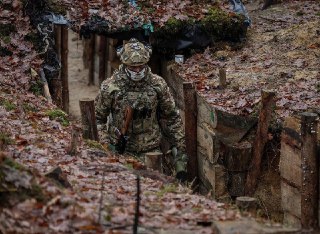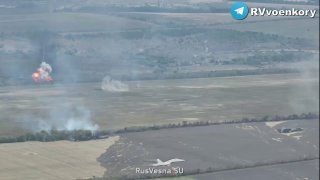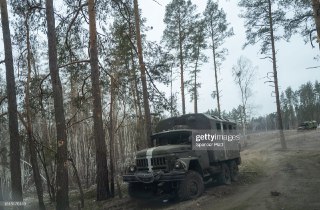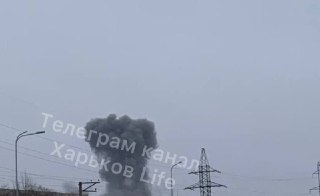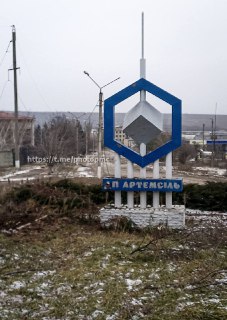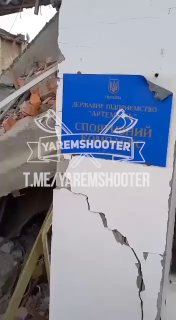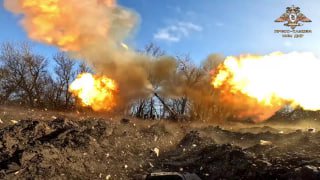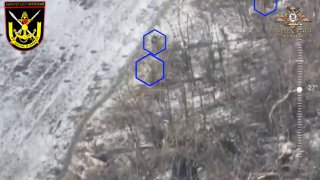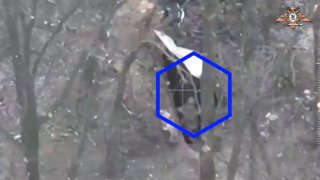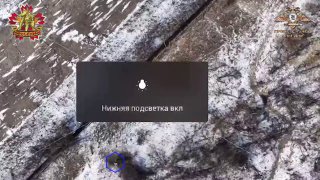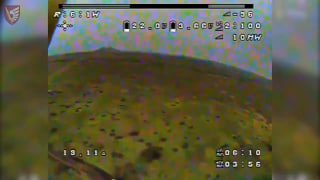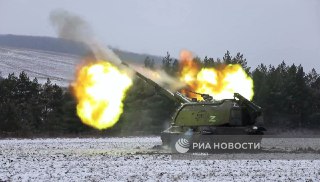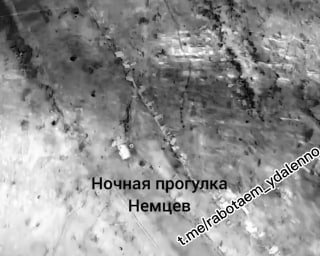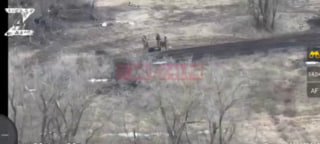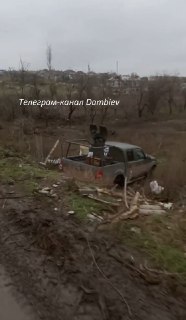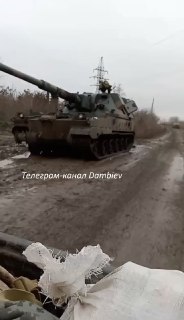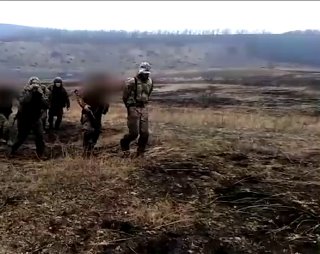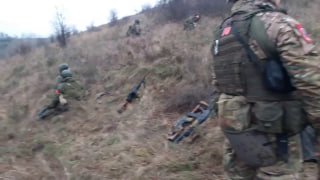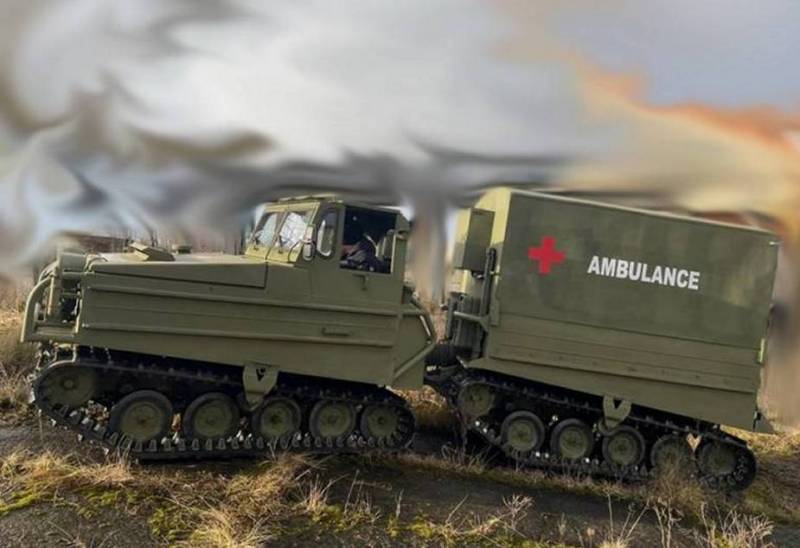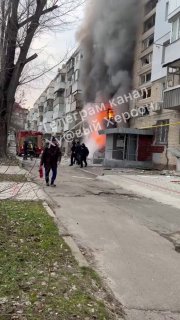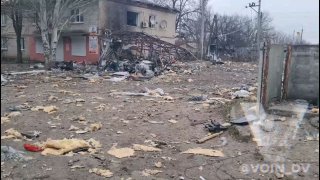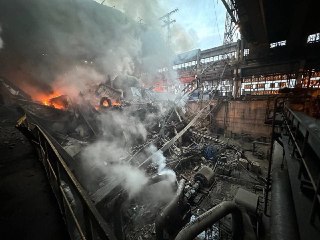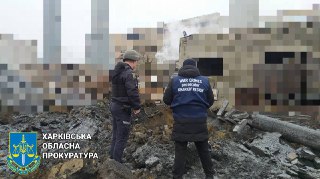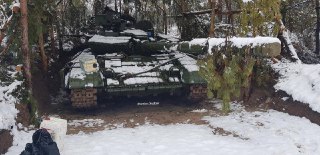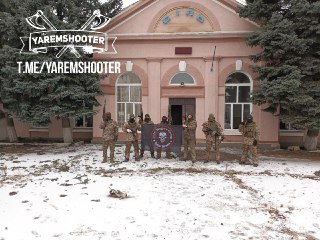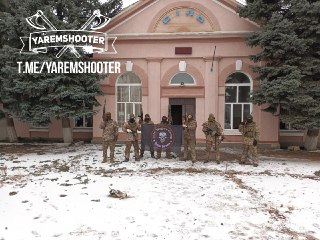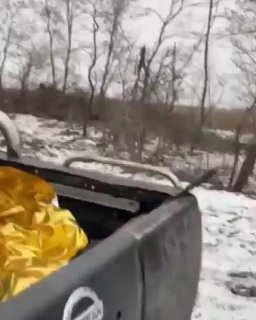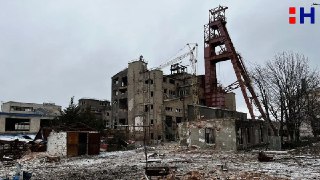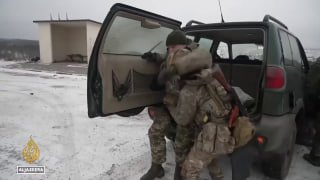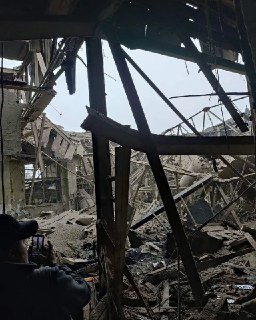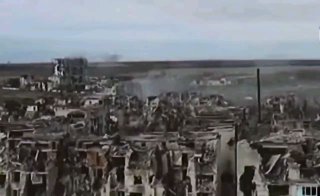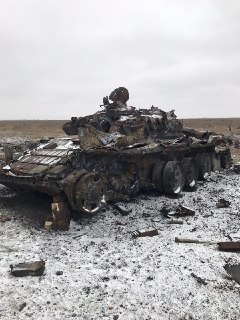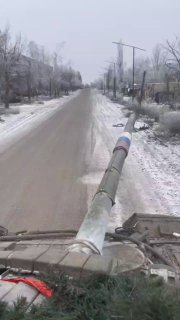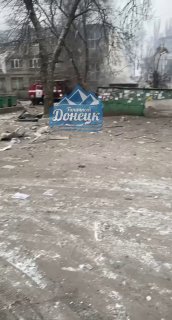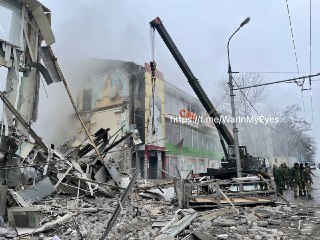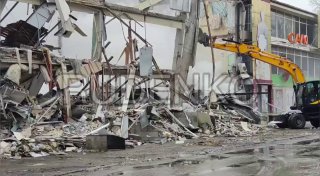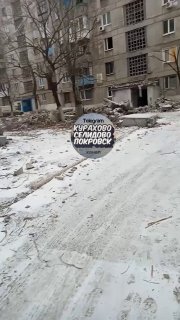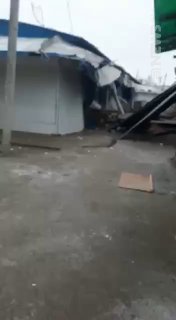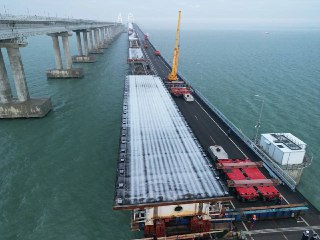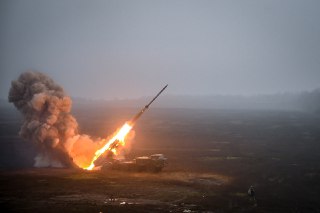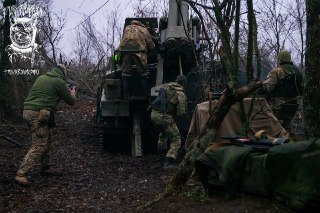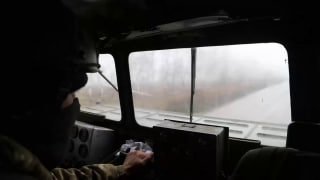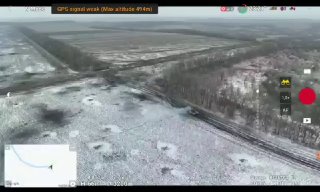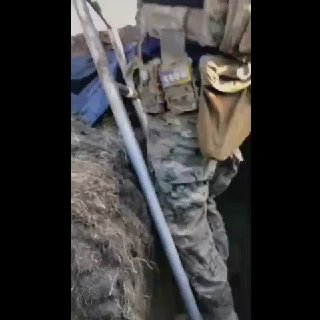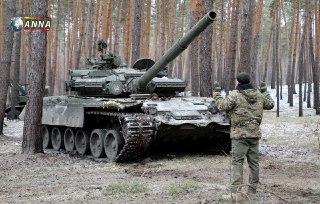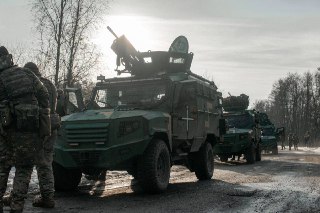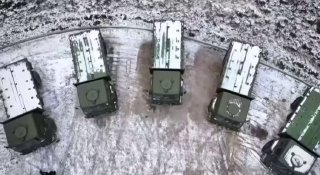- Thread Starter Thread Starter
- #6,801
How were supplies in terms of food?
If honestly, sometimes good sometimes not. We don't stay in one place, that would get punished immediately (he's referring to enemy fires here - F.) You have to change your position whether you want to or not. While you're relocation, something can get skipped. For example if the gunner sergeant is heading out with supplies to the old position, we're not there. What to do?
If you got information on where supplies need to go, you'll have everything, fresh bread, canned meat, vegetables, everything. If you didn't get information, your stomach will be growling. It happens.
What about kitchens?
We didn't have them, I never saw any.
MREs?
It was different at different times. Overall logistics were problematic because we were artillery but we were attached to an infantry unit. How and how is supposed to supply us - total chaos. In theory the infantry, because how do you get around all 6 batteries of the btln and bring them everything? And that's why when it was good we had bread, pasta, potatoes, and meat. And MREs. But when it was bad you might have one can of meat for the entire day. And this happened more then once.
How did you work with the infantry?
It was ok. We have different jobs. For us it's simple; if the enemy is defending, we're firing on targets, and if they're attacking, we shell their advancing infantry.
And based on feedback, how did it go?
In general it worked. We made like hell for their infantry. Hitting vehicles - that's pointless, unrealistic when it's moving. Or some magical accident. But to convince their infantry that advancing is not a good idea - that was our main job.
She (Akatsiya) isn't meant for firing on moving vehicles. But against infantry in the open or even in trenches, especially if you can land in a trench.
Media has frequently reported that we have a shortage of artillery shells. That we even purchased them in Korea. Did you have situations where infantry is calling for fire support but you have no shells?
We did have problems, but not with shells rather with the charges. The long ones. We couldn't fire full distance, we had to get closer to the position to try and reach targets. Although based on instructions we weren't supposed to do that at all.
It was very bad with long range charges. But we had tons of close range ones. And we always had enough shells.
How was medical support?
There wasn't any. We had one medic for 6 batteries, we saw him several times. That's it. We had some medication but we didn't complain. If something happened, the commander made the decision.
When we went to war we purchased half a pharmacy, just in case.
Were your commanders professional military or also volunteers?
Commanders were all professional, the entire brigade were contractors, completely, there were no children (conscripts). And then they added us to the contractors. Our entire gun crew was volunteers.
For commanders they were generally educated and smart. In artillery I mean. I had a case where they sent us an officer that finished officer school but didn't know his job and almost hit friendlies. He was immediately removed from command and sent back for retraining. Inside our unit but away from the front line.
Artillery is all math, so how the commander calculates is how we fire. And the officers here are more important then in the infantry. If you get your math wrong, you'll send a greeting to your own infantry. But we generally had well trained officer, and even with such old junk we never dropped rounds on our own.
What are your plans, once you're healthy again?
Well, I've finished my contract. Right now after the comission it will be clearer. They're saying people are getting their service obligations extended, but in general I'm not planning on it. Not with this kind of organization.
Were all the volunteers about the same age?
Yes, practically all 45-50. I didn't see anyone younger, and in general war is no place for children. It was more unpleasant that we're old and the equipment is too. It should have been the other way around, they should have given us the most modern kit, we were' volunteers, motivated, nobody bought is with money or forced us here. We came because it was necessary. So that those under 30 wouldn't die for nothing. But they gave us old junk.
I got a rifle from 1968, older then me, and with a bent barrel. You can believe me or not but it was noticeable. I asked them, what do I do with the? They said, you'll keep it in the vehicle, you won't need it. This was true. But if something had happened, I wouldn't be much of a fighter...
Since we're talking about the young ones, what's your take on conscripts signing contracts to keep serving?
Sure, they can, but they shouldn't be here. I've seen them, they're children. Mine are older. THey're not ready for this, a different generation, different mindset, they look at internet videos, and then go to "mow down Ukrainians". But it's not like Konashenko's (Russian MoD spokeperson - F) report. Insted of clean stories, dirty work. It's not so bad with us, but for the infantry it's awful. We at least don't have to dig like that.
I didn't see young ones at all, our brigade was strange like that. I don't know how they formed it but we had no kids.
There's no point in fighters like that. It's good they're not sending them, they will just be useless casualties.
What do you see as the main problems?
The equipment is so old, you often want to give up. And it's not just us, the infantry tells us similar things. The impression is that they gathered all the old junk they could and brought it here, something you don't mind getting destroyed.
I don't know who brought it here or why, but if the only thing that works in your howitzer is the crew, there's no heating in the frost, the ventilation doesn't work and you're getting poisoned by gas from the powder... it can be that we spend a day firing a lot, and then 2-3 days throwing up from the gas. And you can't do anything to fix it, it can't be fixed in the field.
I can't say is my Akatsiya outdated or not. We can shoot, we can hit where we need to. But it's so old that nobody wants to fix it at all. Often if a part goes out of service, the vehicle is stripped for parts and just abandoned. Take what you can and leave it.
It's too bad we don't have our mechanics here. They could tell you some horror stories. They're really more mechanics then drivers. Starting our howitzer is a dance with tambourines. Often you get a push from another vehicle to go out on assingment. You often want to leave it running, but you can't. Once you're done firing, you have to hide in the treeline. Fire - then hide and conceal, so the "chainsaw" (slang for UAVs, due to engine noise - F) won't find you.
We had a terrible situation; we went out on position, finished firing, and then 2 vehicles out of 6 won't start. Quite the feeling... We have to get out of there before counter-battery fire lands, but they don't start, no matter what you do. And if it was only one, but it's two. Of course we had to try and tow them out. And we can't leave them, enemy fires will destroyed them.
In general we all have the same problem; where's all that equipment that they were showing us on TV? Why are we at war in this? I was born in 1976, my howtizer in 1972. We match each other of course.
Why are there no long range charges? We, in our old junk, that's barely puttering along, creep up almost to the front line, to reach where we need to. And you have to reach, because the ones sitting there are making life hell for our infantry. So we go. We fire.
And if you had a Msta, would you sign a second contract?
Well if I could only get a peek at one.... I would even go back on an Akatsiya, but one where everything works. A fresh one. As is, no I won't sign a second contract.

 topwar.ru
topwar.ru
If honestly, sometimes good sometimes not. We don't stay in one place, that would get punished immediately (he's referring to enemy fires here - F.) You have to change your position whether you want to or not. While you're relocation, something can get skipped. For example if the gunner sergeant is heading out with supplies to the old position, we're not there. What to do?
If you got information on where supplies need to go, you'll have everything, fresh bread, canned meat, vegetables, everything. If you didn't get information, your stomach will be growling. It happens.
What about kitchens?
We didn't have them, I never saw any.
MREs?
It was different at different times. Overall logistics were problematic because we were artillery but we were attached to an infantry unit. How and how is supposed to supply us - total chaos. In theory the infantry, because how do you get around all 6 batteries of the btln and bring them everything? And that's why when it was good we had bread, pasta, potatoes, and meat. And MREs. But when it was bad you might have one can of meat for the entire day. And this happened more then once.
How did you work with the infantry?
It was ok. We have different jobs. For us it's simple; if the enemy is defending, we're firing on targets, and if they're attacking, we shell their advancing infantry.
And based on feedback, how did it go?
In general it worked. We made like hell for their infantry. Hitting vehicles - that's pointless, unrealistic when it's moving. Or some magical accident. But to convince their infantry that advancing is not a good idea - that was our main job.
She (Akatsiya) isn't meant for firing on moving vehicles. But against infantry in the open or even in trenches, especially if you can land in a trench.
Media has frequently reported that we have a shortage of artillery shells. That we even purchased them in Korea. Did you have situations where infantry is calling for fire support but you have no shells?
We did have problems, but not with shells rather with the charges. The long ones. We couldn't fire full distance, we had to get closer to the position to try and reach targets. Although based on instructions we weren't supposed to do that at all.
It was very bad with long range charges. But we had tons of close range ones. And we always had enough shells.
How was medical support?
There wasn't any. We had one medic for 6 batteries, we saw him several times. That's it. We had some medication but we didn't complain. If something happened, the commander made the decision.
When we went to war we purchased half a pharmacy, just in case.
Were your commanders professional military or also volunteers?
Commanders were all professional, the entire brigade were contractors, completely, there were no children (conscripts). And then they added us to the contractors. Our entire gun crew was volunteers.
For commanders they were generally educated and smart. In artillery I mean. I had a case where they sent us an officer that finished officer school but didn't know his job and almost hit friendlies. He was immediately removed from command and sent back for retraining. Inside our unit but away from the front line.
Artillery is all math, so how the commander calculates is how we fire. And the officers here are more important then in the infantry. If you get your math wrong, you'll send a greeting to your own infantry. But we generally had well trained officer, and even with such old junk we never dropped rounds on our own.
What are your plans, once you're healthy again?
Well, I've finished my contract. Right now after the comission it will be clearer. They're saying people are getting their service obligations extended, but in general I'm not planning on it. Not with this kind of organization.
Were all the volunteers about the same age?
Yes, practically all 45-50. I didn't see anyone younger, and in general war is no place for children. It was more unpleasant that we're old and the equipment is too. It should have been the other way around, they should have given us the most modern kit, we were' volunteers, motivated, nobody bought is with money or forced us here. We came because it was necessary. So that those under 30 wouldn't die for nothing. But they gave us old junk.
I got a rifle from 1968, older then me, and with a bent barrel. You can believe me or not but it was noticeable. I asked them, what do I do with the? They said, you'll keep it in the vehicle, you won't need it. This was true. But if something had happened, I wouldn't be much of a fighter...
Since we're talking about the young ones, what's your take on conscripts signing contracts to keep serving?
Sure, they can, but they shouldn't be here. I've seen them, they're children. Mine are older. THey're not ready for this, a different generation, different mindset, they look at internet videos, and then go to "mow down Ukrainians". But it's not like Konashenko's (Russian MoD spokeperson - F) report. Insted of clean stories, dirty work. It's not so bad with us, but for the infantry it's awful. We at least don't have to dig like that.
I didn't see young ones at all, our brigade was strange like that. I don't know how they formed it but we had no kids.
There's no point in fighters like that. It's good they're not sending them, they will just be useless casualties.
What do you see as the main problems?
The equipment is so old, you often want to give up. And it's not just us, the infantry tells us similar things. The impression is that they gathered all the old junk they could and brought it here, something you don't mind getting destroyed.
I don't know who brought it here or why, but if the only thing that works in your howitzer is the crew, there's no heating in the frost, the ventilation doesn't work and you're getting poisoned by gas from the powder... it can be that we spend a day firing a lot, and then 2-3 days throwing up from the gas. And you can't do anything to fix it, it can't be fixed in the field.
I can't say is my Akatsiya outdated or not. We can shoot, we can hit where we need to. But it's so old that nobody wants to fix it at all. Often if a part goes out of service, the vehicle is stripped for parts and just abandoned. Take what you can and leave it.
It's too bad we don't have our mechanics here. They could tell you some horror stories. They're really more mechanics then drivers. Starting our howitzer is a dance with tambourines. Often you get a push from another vehicle to go out on assingment. You often want to leave it running, but you can't. Once you're done firing, you have to hide in the treeline. Fire - then hide and conceal, so the "chainsaw" (slang for UAVs, due to engine noise - F) won't find you.
We had a terrible situation; we went out on position, finished firing, and then 2 vehicles out of 6 won't start. Quite the feeling... We have to get out of there before counter-battery fire lands, but they don't start, no matter what you do. And if it was only one, but it's two. Of course we had to try and tow them out. And we can't leave them, enemy fires will destroyed them.
In general we all have the same problem; where's all that equipment that they were showing us on TV? Why are we at war in this? I was born in 1976, my howtizer in 1972. We match each other of course.
Why are there no long range charges? We, in our old junk, that's barely puttering along, creep up almost to the front line, to reach where we need to. And you have to reach, because the ones sitting there are making life hell for our infantry. So we go. We fire.
And if you had a Msta, would you sign a second contract?
Well if I could only get a peek at one.... I would even go back on an Akatsiya, but one where everything works. A fresh one. As is, no I won't sign a second contract.

С точки зрения пехоты. Разжалованный бог войны
«С точки зрения пехоты», но разговор был с артиллеристом. Артиллеристы бывают разные, и выполняют разные задачи. Есть те, кто работает по дальним целям, еще остались противотанкисты, но сегодня рассказ будет от лица того, кто является самым близким другом пехотинцу – артиллерист прикрытия. Наш

